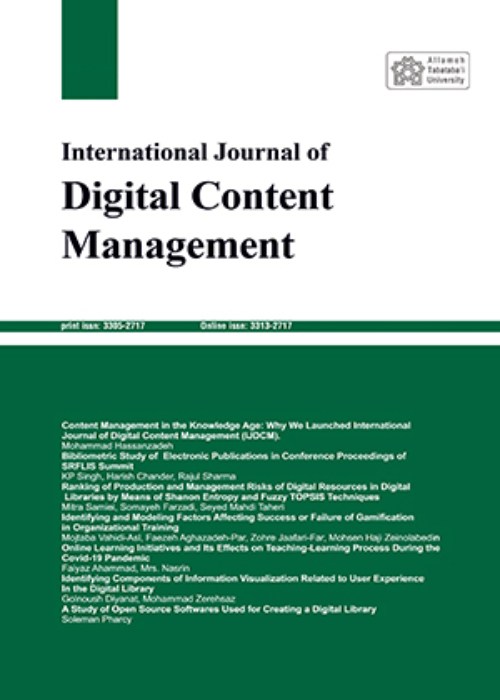Indicators Related to Theorizing Measurement (a Capacity Measurement Framework)
Relatively much research has been done into theorizing and its importance. However, the number of studies related to the understanding of contexts is very negligible and so far no framework has been provided including indicators and evaluation methods. This research has been done with the aim of achieving the indicators related to theorizing and subsequently presenting a formula to measure the potential and theorizing capacity of scientific institutes.
Library and field methods have been used to collect information. Data were first collected through a checklist and then through the AHP questionnaire. The questionnaire was distributed among experts and the AHP method was used to analyze the data. Expert Choice software was used to analyze the data obtained from the AHP questionnaire.
The results indicate that the individual index is 9 times more important than the non-individual index in the theorizing process. Pairwise comparison of individual sub-indices showed that "awareness of theorizing" and "research ability” have an equal portion in theorizing. The "coherence of personality traits" is sextuple as important as the "awareness of theorizing”. "Coherence of personality traits" up to sextuple "research ability" can be considered important in the theorizing process. Pairwise comparison of non-individual index sub-indices showed that "communication level" is twice as important as "institutional index level". However, the “effect level" is twice as important as the "communication level". The "communication level" is 7 times more important than the "management index level". The "effect level" can be considered 7 times more important than the "institutional index level". "Institutional index level" is quadruple more important than "management index level". The "effect level" is extremely important compared to the "management index level".
Although theorizing is done by a researcher or a group of researchers, ultimately, it is a collective matter, or at least, several components are involved in its formation. Theorizing is a coherent, dynamic, purposeful, and thoughtful practice whose results can lead researchers to recognize the credible generalizable relationship between causes and effects. Finally, the formula Tp= (0.9I + 0.1NI) was presented, which can be used to assess the capacity of theorizing in institutes.
- حق عضویت دریافتی صرف حمایت از نشریات عضو و نگهداری، تکمیل و توسعه مگیران میشود.
- پرداخت حق اشتراک و دانلود مقالات اجازه بازنشر آن در سایر رسانههای چاپی و دیجیتال را به کاربر نمیدهد.



